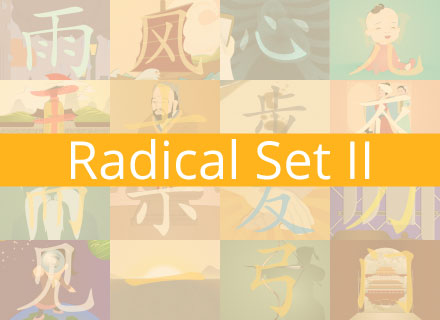间 jiān , jiàn | "Between, Gap" 
间 is a compound ideograph written with the character 日 (rì) inside the radical 门 (mén). 间 has undergone notable changes over the centuries, in ancient times it was written with the character 月 instead of 日, and its original meaning was inspired by the moonlight streaming in between an open doorway.
间 can be pronounced in 1st tone: jiān, or in 4th tone: jiàn. When pronounced “jiān” it means "between", or "middle" like the 日 is between the posts of the 门. In this context, 间 can be found in words such as: 时间 (shí jiān) “time”, 中间 (zhōng jiān) “middle”, and 房间 (fáng jiān) “room”. When pronounced “jiàn” it means: “gap”, “to separate”, or “to sew discontent”, like the 日 is occupying the gap inside 门.Examples of 间 used in this context are: 间奏 (jiàn zòu) “interlude”, 间隔 (jiàn gé) “interval”, 离间 (lí jiàn) "alienate", and 间谍 (jiàn dié) “spy”.
- Category: Compound Ideograph
- Component Characters: 门 Mén | "Gate, Door" and 日 Rì | "Sun, Day"










